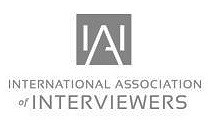Today we’re going to talk about our instructions to witnesses. Now, a lot of the instructions may seem pretty straight forward, pretty simple to understand, and probably easy to comply with. But it never hurts to really take the time to explain to our witnesses why these instructions are so important and why their conduct during the conversation can have such a big impact on the ultimate outcome of the conversation.
Of course, we want our witnesses to be aware of their conduct. So we don’t want them asking questions. We don’t want them answering questions. And the reason why is actually twofold. If they’re asking or answering questions, first and foremost, it can appear that there’s a two-on-one situation: two interviewers, one subject. Additionally it could call into credibility of the interviewer themselves. If the interviewer is supposed to be the one leading the conversation, why is the witness now the one asking the questions? Why is the witness now the one answering the questions?
On top of that, the witness may not have been trained the same way that the interviewer has. So the witness could actually find themselves asking leading questions or anything else that’s going to contaminate the conversation. So we want to stress the importance of being quiet during the conversation, not just because their only role is to sit there and take notes, but because of the potential impact they can have. So it’s really important to stress how we need the information from the person sitting across from us directly. We don’t want to guide the conversation, and that includes the witness by ensuring that they’re not engaging in conversation in any way, shape, or form. They’re now not going to contaminate the conversation either.
Of course, we want them to take very copious and detailed notes, so it doesn’t hurt to give them a little bit more explanation as to what our expectations are. W-Z has a really helpful form called the Post Interview Summary, that can be printed off of our website. And walking your witness through that will give them a better comprehension of the different times and the different parts of the conversation.
It never hurts to sit them down and give them an idea of what the conversation is going to sound like, including the questions you’re going to ask, and similarly some of the responses that they may be getting from the subject as well. Again, making sure that they’re well aware of what types of notes you want, the timelines other than start and finish of course, it’s really going to set them up for success. And the more we set our witnesses up for success, the more at the end of the day we actually set ourselves up as well.
So the next time you are preparing for your interview, I hope you really do take time – five, 10 minutes – just really set it aside for your witness alone. Get them prepared and comfortable with the conversation. Of course, bring enough paper, bring a non-scratchy pen so that they are ready to go. Remind them it’s probably a good idea to turn off their phone so that they’re not distracted either, and they can focus on the content and the conduct of the conversation.
And also let them know what to do at the end of the conversation. Let them know what that can look like so that they are aware, they have expectations, and they’re not sitting there wondering what’s going to happen next.
Thank you so much for joining us today for the W-Z and IAI interviewing tip.


